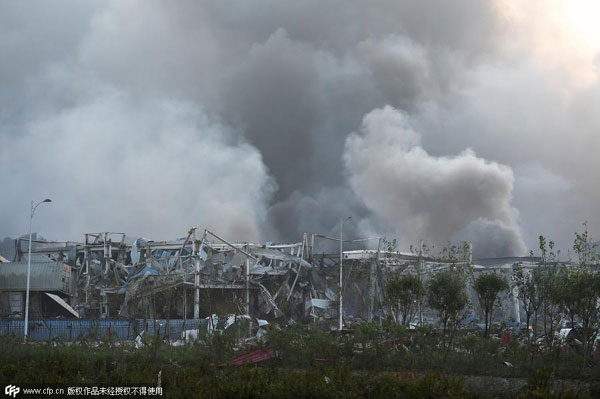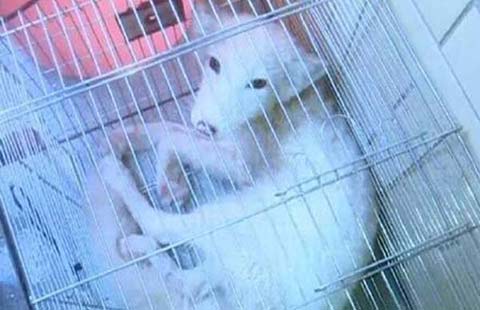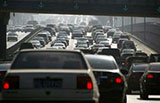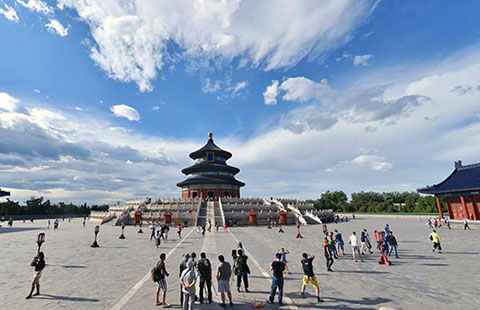'Nobody told us there were chemicals here'
By Xu Wei (China Daily) Updated: 2015-08-17 06:59
 |
|
Smoke billows from the site of an explosion in Tianjin, August 13, 2015. [Photo/CFP] |
"You can never put the six categories of chemicals in the same venue because some would explode when they mix," Dong said.
"It will also give the firefighters a very difficult job. In the case of a fire, some of the chemicals would require the use of water to extinguish, such as potassium nitrate," he said.
"But other chemicals, including calcium carbide, explode when they meet water. Some require the use of dry powder, which also makes the calcium carbide explode," Dong added.
Gao Huaiyou, deputy chief of the Tianjin Bureau of Work Safety, told a news conference on Saturday that authorities were able to confirm the chemicals had been stored in two areas inside the company's premises, in the container area and the transport area.
The authority was only able to confirm some categories of chemicals in the explosion, and it could still take time to confirm all the categories involved, Gao said.
The failure to identify the amount and categories was already delaying the search and rescue effort on Thursday as the rescue headquarters decided that the scene of the accident needed to be surveyed first.
In one of the possible first verdicts on the accident, the State Council Work Safety Committee said in an emergency notice on Friday that the incident exposed problems including failure to implement safety laws and regulations, lapses in the export and import of dangerous cargo, and inappropriate emergency responses in the event of accidents.
The country should strictly prohibit businesses without safe working conditions from working with dangerous chemicals and explosive products, it said.
It also said that the country should improve its ability to cope with such accidents, further improve its emergency response plans and enhance emergency drills among residents.
'Too many questions'
About 77 percent of accidents involving dangerous chemicals in China take place while they are being moved or transported, and another 9 percent take place in warehouses, China Chemical Industry News reported last year, citing figures from the State Administration of Work Safety.
Chai Baoshen, secretary-general of the dangerous-chemicals branch of the China Association of Warehousing and Storage, told China Chemical Industry News in 2012 that the production of chemical products has been increasing steadily over recent years, but exports have fallen sharply, which resulted in stockpiles.
"That has resulted in many dangerous chemicals being stored in unqualified warehouses, which has resulted in safety hazards," he said.
Chai declined an interview request on Friday.
Liu, the apartment owner, said: "We have too many questions to ask. We were also the victims, and now we don't know what to do."
Liu said nobody has paid attention to them on the night of the blasts, as authorities were focusing on the search and rescue effort.
Zhang Lu, who lived near the blast site, said he felt lucky he wasn't injured. "We deserve an explanation over why the warehouse was built near my home without my knowledge," he said.
Both Zhang and Liu said they will not move back. "Whether the warehouses are relocated or not, or however the government offers to help fix the damage, I am not going back. I only want to put the nightmare behind me," Zhang said.
- Delegation salutes Tibet anniversary
- Officials are told to act as anti-graft watchdogs
- Great Wall safeguarded in united action
- Vice minister pledges more efforts to improve air quality
- Beijing’s efforts to control air pollution start to pay off
- China's military committed to reform
- Netizens rip singer over baby photos
- Central govt's growing support for Tibet
- Monument to be built on Tianjin blast site
- China and Russia seal raft of energy deals







